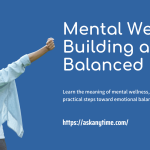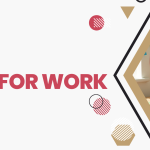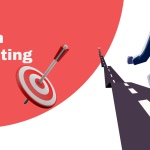Career development has never been more critical than it is today. With technology reshaping industries at breakneck speed and the average person changing careers 5-7 times during their working life, mastering career development strategies isn’t just beneficial—it’s essential for professional survival and success.
Whether you’re a recent graduate mapping out your first career move, a mid-level professional seeking advancement, or an experienced worker considering a complete career pivot, this comprehensive guide will equip you with the tools, strategies, and insights needed to navigate your professional journey successfully.
What is Career Development? Understanding the Foundation
Career development encompasses the lifelong process of managing your learning, work experiences, and career transitions to achieve your professional and personal goals. Unlike job searching, which focuses on immediate opportunities, career development is a strategic, long-term approach to building a fulfilling and successful professional life.
Modern career development involves several interconnected components:
Strategic Career Planning
Creating a roadmap that aligns your skills, interests, and values with market opportunities and future trends.
Continuous Skill Development
Proactively acquiring new competencies to stay relevant and competitive in your field.
Professional Network Building
Cultivating relationships that provide opportunities, mentorship, and industry insights.
Personal Branding
Establishing and maintaining a professional reputation that opens doors and creates opportunities.
Adaptability and Resilience
Developing the mental flexibility to navigate career changes, setbacks, and industry disruptions.
Building a Solid Career Foundation: Self-Discovery and Strategic Planning
Comprehensive Skills and Strengths Assessment
Before charting your career course, you need a clear understanding of your current position. This involves more than just listing your technical skills—it requires deep self-reflection and honest assessment of your capabilities, preferences, and potential.
Technical Skills Inventory
Document your hard skills, including software proficiency, certifications, languages, and specialized knowledge. Rate your proficiency level and identify areas for improvement.
Soft Skills Evaluation
Assess your communication abilities, leadership potential, problem-solving skills, emotional intelligence, and adaptability. These skills often determine long-term career success more than technical abilities.
Values Clarification
Identify what matters most to you in a work environment. Do you prioritize work-life balance, financial compensation, creative freedom, or social impact? Understanding your values helps ensure career satisfaction.
Personality and Work Style Assessment
Utilize tools like the Myers-Briggs Type Indicator, DISC assessment, or StrengthsFinder to understand how you work best and what environments suit your personality.
Career Aptitude Testing
Take comprehensive career aptitude tests that match your interests and abilities with potential career paths. These assessments can reveal opportunities you might not have considered.
Strategic Career Path Selection
With self-awareness established, the next phase involves exploring and evaluating potential career trajectories. This process requires research, experimentation, and strategic thinking.
Industry Research and Analysis
Investigate growth industries, emerging fields, and sectors aligned with your interests. Consider factors like job market trends, salary potential, required qualifications, and long-term viability.
Role Exploration
Shadow professionals in roles that interest you, conduct informational interviews, and attend industry events to gain insider perspectives on different career paths.
Market Demand Assessment
Research job market data to understand which skills and roles are in high demand. Platforms like LinkedIn, Bureau of Labor Statistics, and industry reports provide valuable insights.
Future-Proofing Considerations
Evaluate how automation, artificial intelligence, and technological advances might impact your chosen field. Select paths that offer growth potential and resistance to technological displacement.
Goal Setting and Milestone Creation
Effective career development requires clear, actionable goals that provide direction and motivation. The SMART framework (Specific, Measurable, Achievable, Relevant, Time-bound) remains the gold standard for goal setting.
Short-term Goals (3-12 months):
- Complete a specific certification or training program
- Expand your professional network by attending industry events
- Improve a particular skill through online courses or workshops
- Update and optimize your resume and LinkedIn profile
Medium-term Goals (1-3 years):
- Secure a promotion or transition to a new role
- Develop expertise in an emerging technology or methodology
- Build a portfolio of successful projects or achievements
- Establish yourself as a thought leader in your field
Long-term Goals (3-10 years):
- Achieve a leadership position within your organization or industry
- Launch your own business or consultancy
- Become recognized as an expert in your field
- Achieve specific financial or lifestyle objectives
Essential Career Development Tools and Resources
Resume Excellence and Personal Branding
Your resume serves as your professional calling card and often determines whether you get the opportunity to showcase your abilities in person. In today’s digital age, resume optimization goes beyond basic formatting and content.
Modern Resume Strategies:
- Tailor your resume for each application, emphasizing relevant skills and experiences
- Incorporate keywords from job descriptions to pass Applicant Tracking Systems (ATS)
- Use quantifiable achievements and metrics to demonstrate impact
- Include a professional summary that clearly articulates your value proposition
- Maintain consistent formatting and ensure error-free content
Digital Presence Optimization:
- Create a comprehensive LinkedIn profile that mirrors and expands upon your resume
- Develop a professional portfolio website showcasing your work and achievements
- Maintain active, professional social media presence in your industry
- Publish thought leadership content to establish expertise and visibility
Continuous Learning and Skill Development
In rapidly evolving industries, continuous learning isn’t optional—it’s essential for career survival and advancement. Successful professionals commit to lifelong learning and skill development.
Learning Strategies and Resources:
- Identify industry-relevant certifications and credentials
- Enroll in professional development courses and workshops
- Participate in online learning platforms like Coursera, LinkedIn Learning, or industry-specific training
- Join professional associations and attend conferences
- Seek mentorship and coaching opportunities
- Stay current with industry publications and thought leaders
Emerging Skills in High Demand:
- Digital literacy and data analysis
- Artificial intelligence and machine learning familiarity
- Emotional intelligence and leadership skills
- Cross-cultural communication and global awareness
- Sustainability and environmental consciousness
- Cybersecurity awareness and digital privacy knowledge
Advanced Career Advancement Strategies
Strategic Career Change Management
Career changes, whether voluntary or necessary, require careful planning and execution. Successful career transitions involve transferring existing skills while acquiring new competencies.
Career Transition Framework:
- Assessment Phase: Evaluate your current situation, motivations for change, and desired outcomes
- Exploration Phase: Research new fields, required skills, and potential barriers
- Preparation Phase: Acquire necessary skills, certifications, or experiences
- Transition Phase: Execute your move through networking, applications, and interviews
- Integration Phase: Establish yourself in your new role and continue learning
Overcoming Common Transition Challenges:
- Address skill gaps through targeted learning and experience
- Leverage transferable skills and highlight their relevance
- Build credibility in your new field through projects, volunteering, or part-time work
- Manage financial implications and timeline expectations
- Maintain confidence and motivation throughout the process
Leadership Development and Executive Growth
Advancing to leadership positions requires developing a unique set of skills and demonstrating leadership potential early in your career.
Leadership Competency Development:
- Strategic Thinking: Ability to see the big picture and make long-term decisions
- People Management: Skills in coaching, developing, and motivating team members
- Communication Excellence: Ability to inspire, influence, and communicate vision effectively
- Change Management: Capacity to lead organizations through transitions and transformations
- Decision-Making: Skill in making complex decisions with incomplete information
- Cultural Intelligence: Ability to work effectively across diverse teams and global environments
Leadership Development Pathways:
- Volunteer for high-visibility projects and cross-functional teams
- Seek formal leadership training and development programs
- Find mentors and sponsors who can provide guidance and opportunities
- Take on progressively challenging roles with increasing responsibility
- Build a track record of successful team leadership and results delivery
Professional Networking and Relationship Building
Professional networking extends far beyond collecting business cards or LinkedIn connections. Effective networking involves building genuine relationships that provide mutual value and support.
Strategic Networking Approaches:
- Identify key industry events, conferences, and professional associations
- Develop an authentic personal brand and value proposition
- Practice active listening and genuine interest in others
- Provide value to your network through introductions, insights, or assistance
- Maintain regular contact with your professional network
- Leverage social media platforms for professional relationship building
Navigating Modern Career Challenges
Remote Work and Digital Career Management
The shift toward remote and hybrid work has fundamentally changed career development strategies. Professionals must now excel in digital communication, virtual collaboration, and self-directed work.
Remote Career Success Strategies:
- Develop strong digital communication and collaboration skills
- Create a professional home office environment
- Maintain visibility and engagement with colleagues and leadership
- Proactively seek feedback and development opportunities
- Build relationships through virtual networking and team building
- Demonstrate results and impact through clear metrics and communication
Gig Economy and Alternative Career Paths
Traditional career paths are evolving, with more professionals embracing freelancing, consulting, and portfolio careers that combine multiple income streams.
Alternative Career Considerations:
- Evaluate the financial implications of non-traditional employment
- Develop strong personal branding and marketing skills
- Build diverse client bases and income streams
- Maintain professional development and skill updating
- Plan for retirement and benefits independently
- Create systems for managing multiple projects and clients
Industry Disruption and Future-Proofing
Technological advancement and industry disruption require professionals to anticipate change and adapt proactively.
Future-Proofing Strategies:
- Stay informed about industry trends and technological developments
- Develop skills that complement rather than compete with automation
- Build adaptability and learning agility as core competencies
- Cultivate diverse skill sets and cross-functional knowledge
- Maintain financial flexibility and emergency planning
- Network across industries and functional areas
Measuring Career Development Success
Key Performance Indicators for Career Growth
Successful career development requires regular assessment and adjustment. Establish metrics to track your progress and identify areas for improvement.
Career Development Metrics:
- Salary progression and total compensation growth
- Skill acquisition and certification completion
- Network expansion and relationship quality
- Leadership responsibilities and team size
- Industry recognition and professional reputation
- Work satisfaction and life balance achievement
Regular Career Reviews and Planning
Conduct quarterly career reviews to assess progress, identify challenges, and adjust strategies as needed.
Career Review Process:
- Evaluate progress toward established goals
- Assess skill development and learning outcomes
- Review market conditions and industry trends
- Gather feedback from supervisors, peers, and mentors
- Adjust goals and strategies based on insights and changes
Plan specific actions for the upcoming quarter
Conclusion: Taking Control of Your Career Journey
Career development in the modern workplace requires intentional planning, continuous learning, and adaptive strategies. Success comes from combining self-awareness with market intelligence, strategic goal-setting with flexible execution, and personal growth with professional advancement.
The career landscape will continue evolving, presenting both challenges and opportunities. Professionals who embrace lifelong learning, build strong networks, and maintain adaptability will thrive regardless of industry changes or economic fluctuations.
Your career development journey is unique to you, but the principles and strategies outlined in this guide provide a framework for success. Start by conducting an honest self-assessment, set clear goals, and take consistent action toward your professional objectives.
Remember, career development is not a destination but an ongoing journey of growth, learning, and advancement. Begin today by identifying your next step and committing to the continuous improvement that will define your professional success.
The tools, resources, and strategies exist to help you achieve your career aspirations. The only question remaining is: are you ready to take control of your career journey?
Ready to accelerate your career development? Start with a comprehensive skills assessment, set SMART goals for the next quarter, and identify three specific actions you can take this week to move closer to your professional objectives.




